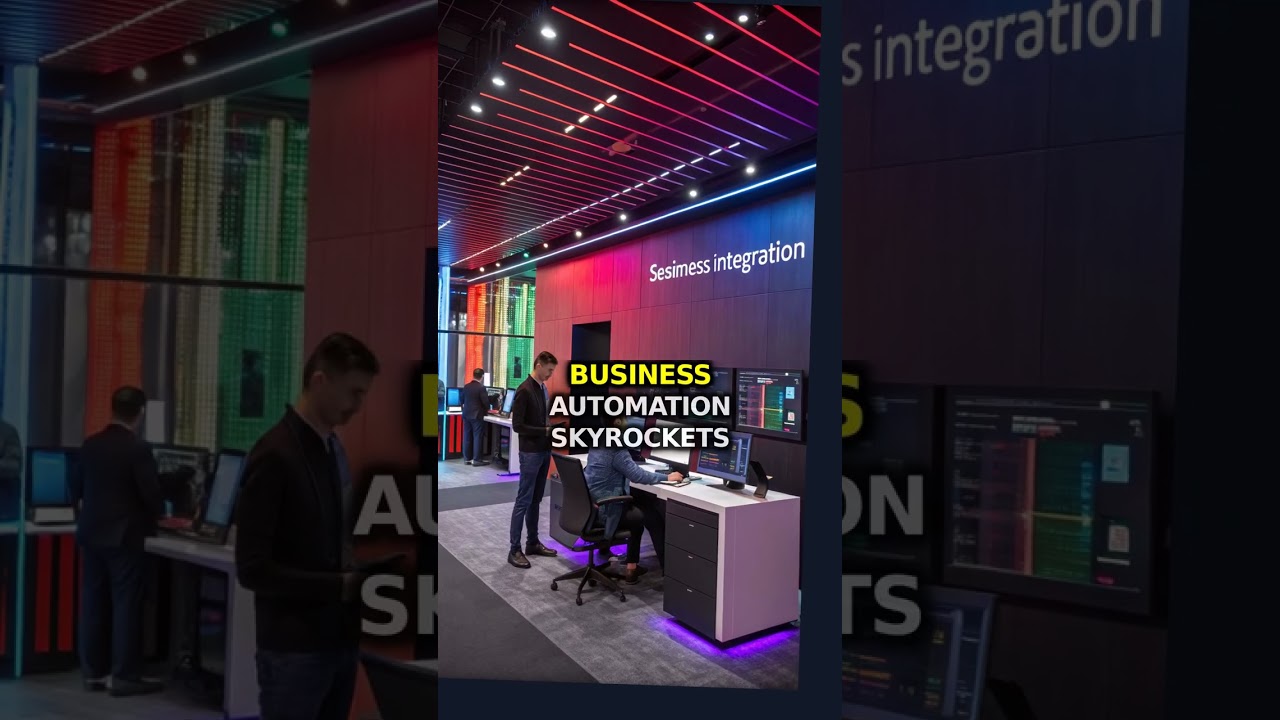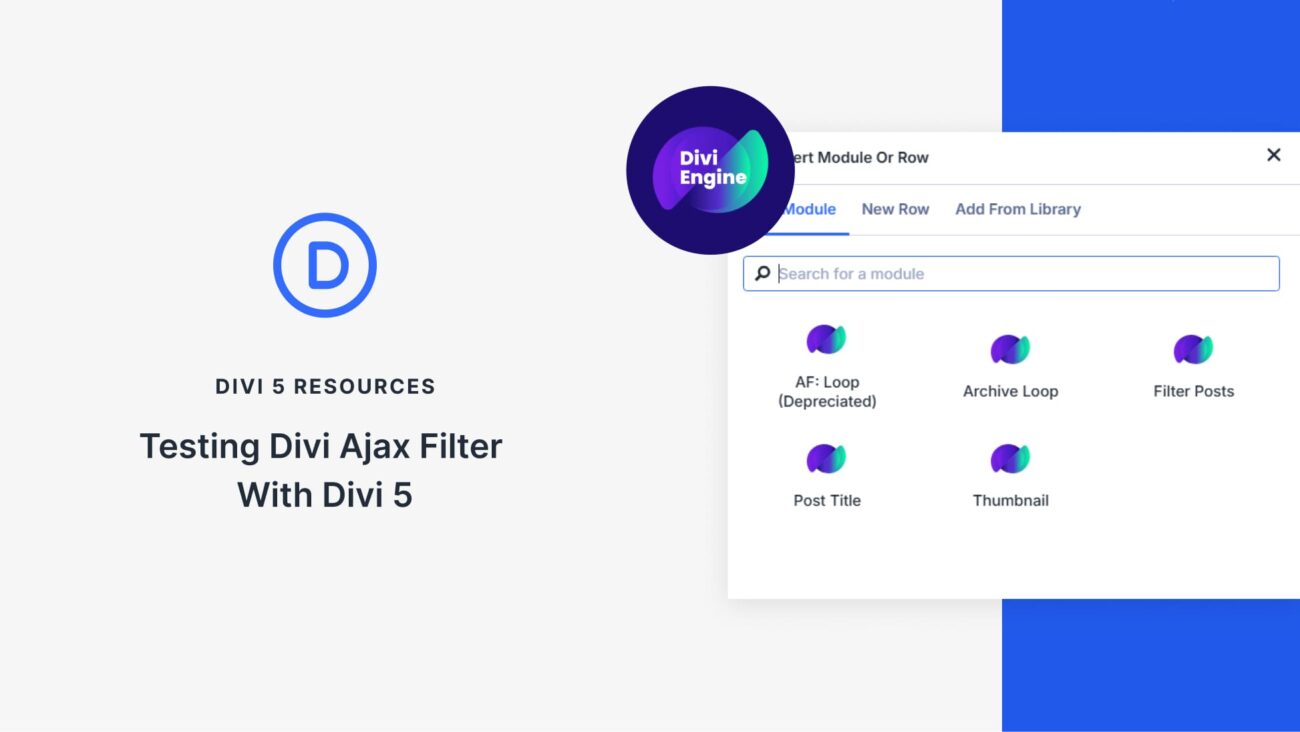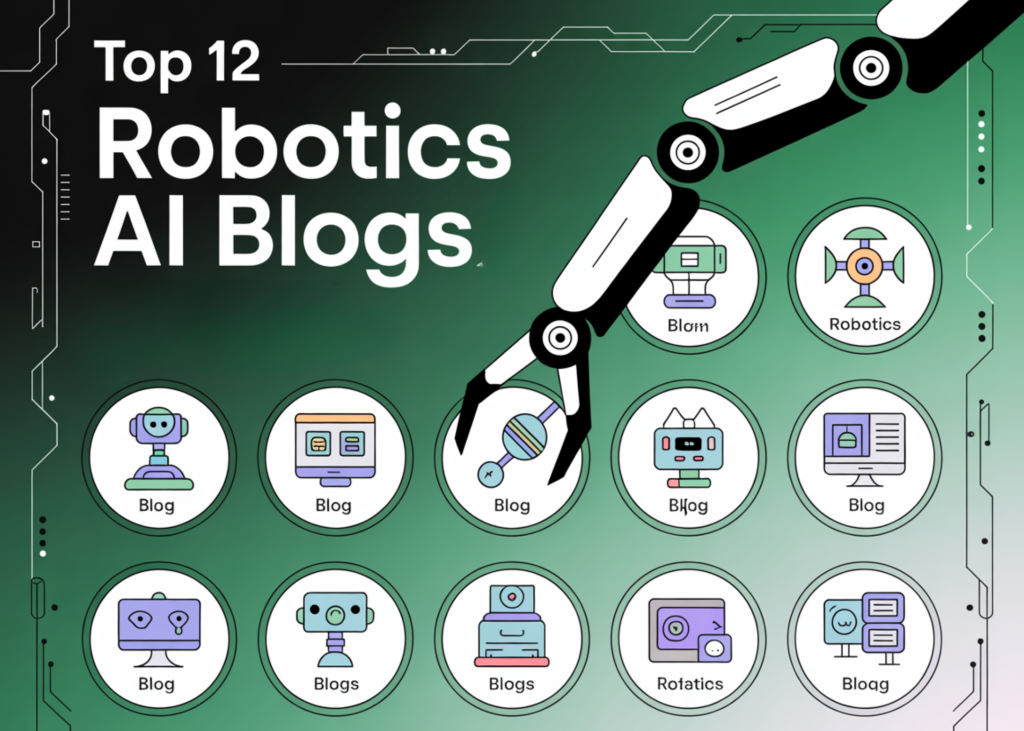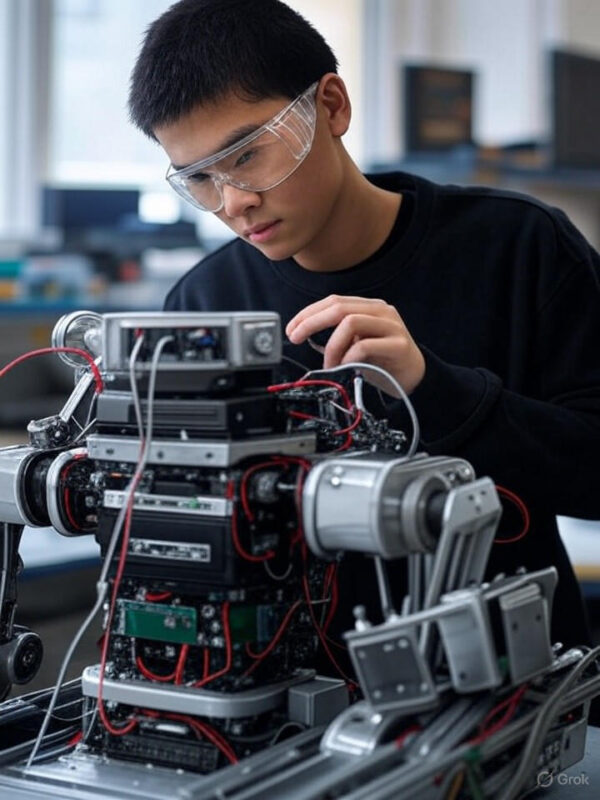Blog
Introduction: The New Era of Intelligent Technology
In an age where efficiency and innovation reign supreme, AI and automation have emerged as game-changing forces reshaping industries, economies, and daily life. From self-driving cars to chatbots handling customer inquiries, these technologies are no longer futuristic concepts—they’re here, and they’re transforming how we work, live, and interact. This blog post dives into the dynamic relationship between AI and automation, explores their real-world applications, and offers actionable insights for businesses ready to embrace this technological revolution.
Understanding AI and Automation: Definitions and Key Differences
Before delving into their impact, it’s crucial to clarify what AI and automation truly mean—and how they differ.
What Is Automation?
Automation refers to technology designed to perform repetitive, rule-based tasks without human intervention. Think assembly line robots in manufacturing or software that processes invoices. Its primary goal is to boost efficiency, reduce errors, and free humans to focus on higher-value work.
What Is Artificial Intelligence (AI)?
AI, on the other hand, involves systems that mimic human intelligence. Machine learning, natural language processing, and computer vision enable AI to analyze data, make decisions, and adapt to new inputs. Unlike static automation, AI improves over time, learning from patterns to optimize outcomes.
Synergy in Action
While automation excels at executing predefined tasks, AI adds a layer of cognitive capability. Together, they create intelligent automation—think chatbots that not only answer FAQs but also understand customer sentiment and escalate complex issues.
Transforming Industries: Applications of AI and Automation
From healthcare to retail, AI and automation are driving unprecedented advancements. Here’s how they’re revolutionizing key sectors:
1. Healthcare: Precision and Personalization
AI-powered diagnostics tools analyze medical images with accuracy rivaling human experts, while robotic surgery systems enable minimally invasive procedures. Automation streamlines administrative workflows, such as patient scheduling and billing, allowing providers to prioritize care.
2. Manufacturing: Smarter Production Lines
Automated robots assemble products 24/7 with pinpoint precision, while AI algorithms predict equipment failures before they occur. This fusion minimizes downtime, reduces waste, and ensures consistent quality.
3. Retail: Enhancing Customer Experiences
AI-driven recommendation engines personalize shopping experiences by analyzing browsing habits and purchase history. Behind the scenes, automation manages inventory, tracks shipments, and processes returns, ensuring seamless operations.
4. Finance: Risk Management and Fraud Detection
Banks use AI to assess credit risk in real time and detect fraudulent transactions. Automated tools handle routine tasks like loan approvals, accelerating processes while maintaining compliance.
Benefits of Merging AI and Automation
Combining these technologies unlocks transformative advantages for businesses:
- Scalability: Automate repetitive tasks while leveraging AI to handle complex decision-making.
- Cost Savings: Reduce operational expenses by minimizing errors and optimizing resource use.
- Enhanced Innovation: Free up human talent to focus on creative problem-solving and strategic initiatives.
- Data-Driven Insights: AI analyzes vast datasets to uncover trends, forecast demand, and inform business strategies.
Challenges and Ethical Considerations
Despite their potential, AI and automation present challenges that demand careful navigation:
Job Displacement vs. Job Creation
While automation may replace certain roles, it also creates opportunities in AI development, data analysis, and system maintenance. Reskilling programs and lifelong learning initiatives are critical to preparing the workforce for this shift.
Data Privacy and Security
AI systems rely on vast amounts of data, raising concerns about breaches and misuse. Robust encryption, transparent data policies, and compliance with regulations like GDPR are non-negotiable.
Bias and Fairness
AI models trained on biased data can perpetuate discrimination. Organizations must prioritize ethical AI practices, including diverse training datasets and regular audits.
The Future of AI and Automation: Trends to Watch
As technology evolves, several trends will shape the next decade:
- Hyperautomation: Combining AI, machine learning, and robotic process automation (RPA) to automate end-to-end workflows.
- Human-AI Collaboration: Tools like AI assistants will augment human capabilities rather than replace them.
- AI in Sustainability: Optimizing energy use, reducing emissions, and improving supply chain transparency.
- Voice and Visual Search: Advancements in NLP and computer vision will redefine how users interact with technology.
Implementing AI and Automation: Steps for Success
For businesses ready to adopt these technologies, a strategic approach is key:
- Identify Pain Points: Start with tasks that are repetitive, time-consuming, or prone to human error.
- Choose the Right Tools: Evaluate platforms based on scalability, integration capabilities, and user-friendliness.
- Upskill Teams: Train employees to work alongside AI systems, focusing on data literacy and critical thinking.
- Monitor and Iterate: Continuously assess performance, gather feedback, and refine your approach.
Conclusion: Embracing the Intelligent Revolution
AI and automation are not just tools—they’re catalysts for a smarter, more efficient future. By understanding their potential, addressing challenges proactively, and fostering a culture of innovation, businesses can stay ahead of the curve. The key lies in balancing technological advancement with ethical responsibility, ensuring these tools empower people and drive sustainable growth. As the landscape evolves, one thing is clear: those who adapt strategically today will lead the industries of tomorrow.
This comprehensive exploration of AI and automation provides a roadmap for leveraging their power while addressing the complexities of our rapidly changing world. Whether you’re a business leader, tech enthusiast, or curious learner, the journey toward intelligent transformation starts with a single step—and the time to take it is now.
Elementor Pro
In stock
PixelYourSite Pro
In stock
Rank Math Pro
In stock
Related posts
Microsoft Tests Intrusive Windows 11 Boot-Up Ads for Expired 365 Subscriptions
TOP 20: melhores plugins para seu WordPress (2025) | Turbine seu site com essas dicas 🚀
Free AI tools in wordpress for content, wireframes, design, images
5-Week AI Mentorship for Startups in SF
Testing Divi Ajax Filter With Divi 5
Best Websites to Download Free GPL WordPress Themes & Plugins in 2025
3 Ways to Build ACTUALLY Beautiful Websites Using Cursor AI
Global ERP Software Market to Hit $229B by 2033 Amid Tech Boom
Top 12 Robotics AI Blogs/NewsWebsites 2025
FREE WordPress Complete Course For Beginners 2025 | How To Make a WordPress Website
【AI解説】AIと対話しHP生成WordPress.com「AI Website Builder」使い方
Competitive Robotics Programs Build Skills for AI-Driven 2025 Workforce
Products
-
 Team Showcase – WordPress Plugin
Team Showcase – WordPress Plugin
$53.71Original price was: $53.71.$4.02Current price is: $4.02.In stock
-
 ChatBot for WooCommerce – Retargeting, Exit Intent, Abandoned Cart, Facebook Live Chat – WoowBot
ChatBot for WooCommerce – Retargeting, Exit Intent, Abandoned Cart, Facebook Live Chat – WoowBot
$53.71Original price was: $53.71.$4.02Current price is: $4.02.In stock
-
 FOX – Currency Switcher Professional for WooCommerce
FOX – Currency Switcher Professional for WooCommerce
$41.00Original price was: $41.00.$4.02Current price is: $4.02.In stock
-
 WooCommerce Attach Me!
WooCommerce Attach Me!
$41.00Original price was: $41.00.$4.02Current price is: $4.02.In stock
-
 Magic Post Thumbnail Pro
Magic Post Thumbnail Pro
$53.71Original price was: $53.71.$3.69Current price is: $3.69.In stock
-
 Bus Ticket Booking with Seat Reservation PRO
Bus Ticket Booking with Seat Reservation PRO
$53.71Original price was: $53.71.$4.02Current price is: $4.02.In stock
-
 GiveWP + Addons
GiveWP + Addons
$53.71Original price was: $53.71.$3.85Current price is: $3.85.In stock
-
 ACF Views Pro
ACF Views Pro
$62.73Original price was: $62.73.$3.94Current price is: $3.94.In stock
-
 Kadence Theme Pro
Kadence Theme Pro
$53.71Original price was: $53.71.$3.69Current price is: $3.69.In stock
-
 LoginPress Pro
LoginPress Pro
$53.71Original price was: $53.71.$4.02Current price is: $4.02.In stock
-
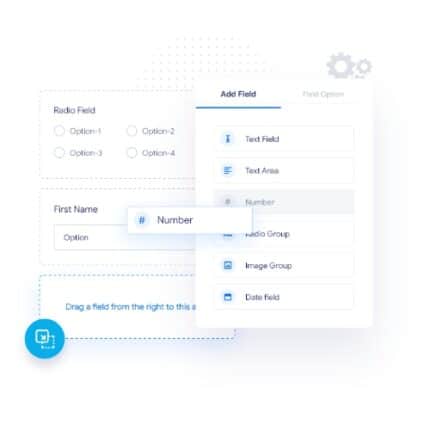 Checkout Field Editor and Manager for WooCommerce Pro
Checkout Field Editor and Manager for WooCommerce Pro
$53.71Original price was: $53.71.$3.94Current price is: $3.94.In stock
-
 Social Auto Poster
Social Auto Poster
$53.71Original price was: $53.71.$3.94Current price is: $3.94.In stock
-
 Vitepos Pro
Vitepos Pro
$53.71Original price was: $53.71.$12.30Current price is: $12.30.In stock
-
 Digits : WordPress Mobile Number Signup and Login
Digits : WordPress Mobile Number Signup and Login
$53.71Original price was: $53.71.$3.94Current price is: $3.94.In stock
-
 BookingPress Pro – Appointment Booking plugin
BookingPress Pro – Appointment Booking plugin
$53.71Original price was: $53.71.$3.94Current price is: $3.94.In stock
-
 Polylang Pro
Polylang Pro
$53.71Original price was: $53.71.$3.94Current price is: $3.94.In stock
-
 All-in-One WP Migration Unlimited Extension
All-in-One WP Migration Unlimited Extension
$53.71Original price was: $53.71.$3.94Current price is: $3.94.In stock
-
 Slider Revolution Responsive WordPress Plugin
Slider Revolution Responsive WordPress Plugin
$53.71Original price was: $53.71.$4.51Current price is: $4.51.In stock
-
 Advanced Custom Fields (ACF) Pro
Advanced Custom Fields (ACF) Pro
$53.71Original price was: $53.71.$3.94Current price is: $3.94.In stock
-
 Gillion | Multi-Concept Blog/Magazine & Shop WordPress AMP Theme
Rated 4.60 out of 5
Gillion | Multi-Concept Blog/Magazine & Shop WordPress AMP Theme
Rated 4.60 out of 5$53.71Original price was: $53.71.$5.00Current price is: $5.00.In stock
-
 Eidmart | Digital Marketplace WordPress Theme
Rated 4.70 out of 5
Eidmart | Digital Marketplace WordPress Theme
Rated 4.70 out of 5$53.71Original price was: $53.71.$5.00Current price is: $5.00.In stock
-
 Phox - Hosting WordPress & WHMCS Theme
Rated 4.89 out of 5
Phox - Hosting WordPress & WHMCS Theme
Rated 4.89 out of 5$53.71Original price was: $53.71.$5.17Current price is: $5.17.In stock
-
 Cuinare - Multivendor Restaurant WordPress Theme
Rated 4.14 out of 5
Cuinare - Multivendor Restaurant WordPress Theme
Rated 4.14 out of 5$53.71Original price was: $53.71.$5.17Current price is: $5.17.In stock
-
 Eikra - Education WordPress Theme
Rated 4.60 out of 5
Eikra - Education WordPress Theme
Rated 4.60 out of 5$62.73Original price was: $62.73.$5.08Current price is: $5.08.In stock
-
 Tripgo - Tour Booking WordPress Theme
Rated 5.00 out of 5
Tripgo - Tour Booking WordPress Theme
Rated 5.00 out of 5$53.71Original price was: $53.71.$4.76Current price is: $4.76.In stock
-
 Subhan - Personal Portfolio/CV WordPress Theme
Rated 4.89 out of 5
Subhan - Personal Portfolio/CV WordPress Theme
Rated 4.89 out of 5$53.71Original price was: $53.71.$4.76Current price is: $4.76.In stock
-
 Travel Tour - Travel Booking WordPress
Rated 4.50 out of 5
Travel Tour - Travel Booking WordPress
Rated 4.50 out of 5$53.71Original price was: $53.71.$4.51Current price is: $4.51.In stock
-
 Eduma – Education WordPress Theme
Rated 4.33 out of 5
Eduma – Education WordPress Theme
Rated 4.33 out of 5$53.71Original price was: $53.71.$4.51Current price is: $4.51.In stock
-
 Airtech - Plumber HVAC and Repair theme
Rated 4.80 out of 5
Airtech - Plumber HVAC and Repair theme
Rated 4.80 out of 5$62.73Original price was: $62.73.$5.33Current price is: $5.33.In stock
-
 Bookio – Book Store WooCommerce WordPress Theme
Rated 4.20 out of 5
Bookio – Book Store WooCommerce WordPress Theme
Rated 4.20 out of 5$53.71Original price was: $53.71.$4.92Current price is: $4.92.In stock
